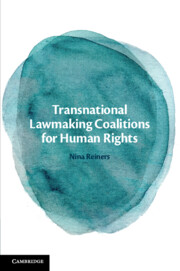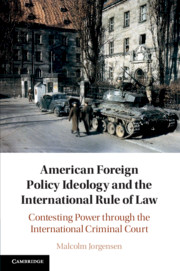When democracies wage war, they ‘know’ that they have the law on their side. The same holds true when they condemn war. But what if democracies take divergent legal positions to one and the same war? Relying on governmental and public ‘Iraq’ discourses in the United States and Germany, this article argues that governments can no longer define the law in isolation from their societal environments. The critical relation of ‘politics,’ ‘law,’ and ‘democracy’ is increasingly established not only in the political centers of states but also in the periphery: in the public discourse. This discursive process of international law becoming ‘public’ cannot be ignored. However, the patterns of meaning of international law vary remarkably. While there is public politics of international law in democracies, a per se ‘democratic’ politics of international law is hardly recognizable.

